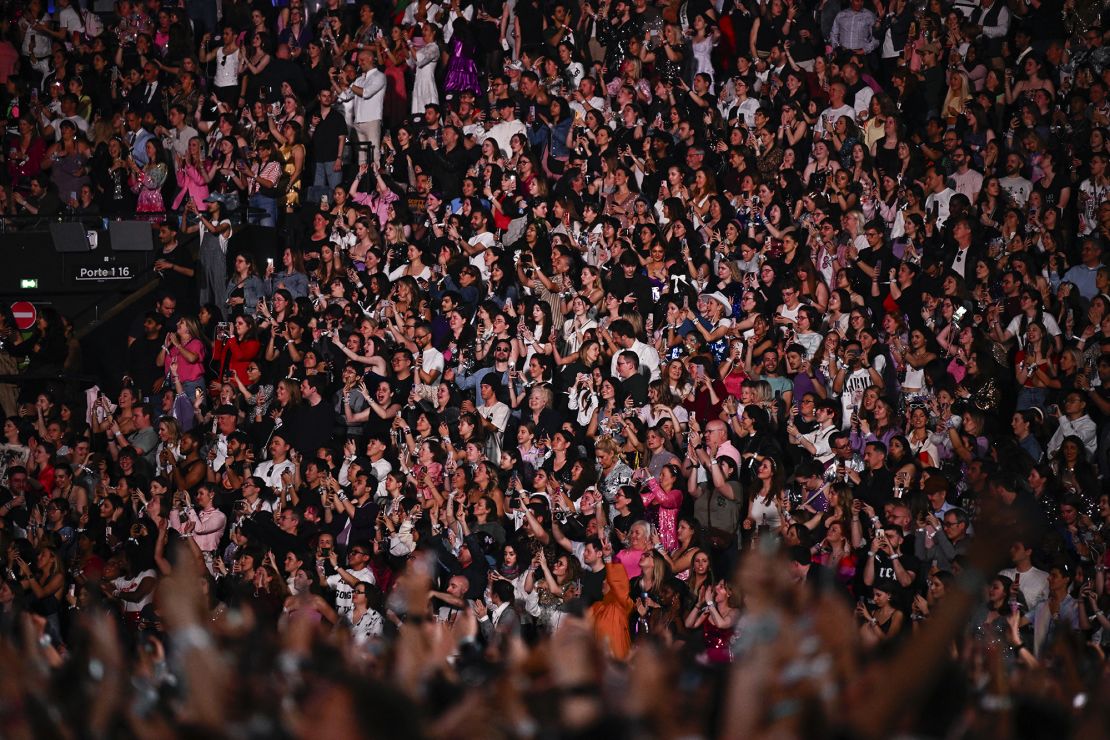Planning a summer vacation in Europe usually requires an exorbitant amount of cash, but when Taylor Swift is involved, it actually might be a deal.
Fans looking to snag tickets to the European leg of her popular “Eras Tour” are finding it substantially cheaper to see Swift overseas — even with flights and hotels factored in — thanks in part to a historically strong dollar and strict European Union regulations placed on ticket resellers that make, in the words of Swift herself, anything but a cruel summer.
Jacking up prices on the European secondary market is “considered a predatory activity that reduces consumer choice and exploits consumers by charging them way higher prices than the event organizers actually intended,” Sam Shemtob, managing director for ticket resale advocacy group Face-value European Alliance for Ticketing (FEAT), told CNN.
For example, secondary market ticket prices for Swift’s show in Stockholm, Sweden, this Saturday are as cheap as $300 for standing room-only and seats in the nosebleed sections. Prices are just a few hundred more in prime seating locations at Friends Arena, home of the Swedish men’s national football team.
Planning a last-minute trip is more expensive compared to planning months ahead, but there are some affordable ways to get to Sweden: A roundtrip flight from New York (with a connection) are running about $700 and rates at 4-star hotel about $300, according to Kayak. Altogether, that’s about $1,300 before food and beverage is factored in.
Compare that to Swift’s show in Miami in October where seats are selling for about $2,000 to as much as $8,500 on StubHub. Prices for her other two US shows in New Orleans and Indianapolis are roughly the same.
Sweden isn’t the only budget-friendly city: Prices for Swift’s stops in Portugal, Spain and Germany in the coming months can be purchased as cheap as $300 to $400 a ticket — substantially cheaper the average resale price of $1,600 during her US dates last year.

Although Europe’s laws on ticket resale vary country by country, a number of them, including Ireland and Portugal, ban ticket sellers from making a profit on the secondary market. In France, reselling is banned unless authorized by the promoter, Shemtob said.
The EU also recently implemented the Digital Services Act for ticket resale marketplaces that “ensure professional sellers are identifiable, prevent certain manipulative sales tactics, and require regular reporting to improve transparency for consumers,” according to FEAT, which lobbied for the law.
Shemtob said the difference in pricing between the US and EU is because the former treats “event tickets like commodities that can be bought or sold according to market prices, but the European Court of Justice has ruled that a ‘dated event ticket’ is a contract between the organizer and the consumer enabling entry under specific terms and conditions — not a commodity that can just be bought and sold.”
Plus, American tourists are finding their money going further: The US dollar index, which measures the currency’s strength against six of its peers, closed last month at its highest level since last November. Although it has faded since April, it’s still strong.
For Swifties looking to jump over the pond for their London Boy, Shemtob recommends using ticket sellers such as Ticketmaster, AEG, Eventim or Twickets.
He added also be “extremely wary of using internet search, because the predatory resale platforms all pay top dollar to have their listings appear at the top of search results.”








